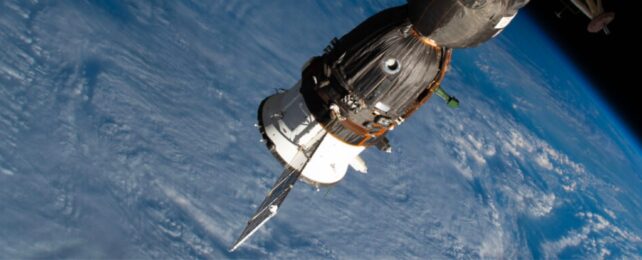Roscosmos appears to be having some issues with a spacecraft again. In December, the Soyuz MS-22 spacecraft that delivered three crew members of Expedition 68 to the International Space Station (ISS) reported a leak in its coolant loop.
On February 11th, engineers at the Russian Mission Control Center outside Moscow recorded a depressurization in Progress 82, an uncrewed cargo craft docked with the Poisk laboratory module.
The cause of these leaks remains unknown, but Roscosmos engineers (with support from their NASA counterparts) will continue investigating.
The incident was noticed on Saturday (February 11th) when another uncrewed cargo craft (Progress 83) docked with the aft end of the Zvezda service module. Like Progress 82, this spacecraft was delivering almost three tons of food, fuel, and supplies for the Expedition 68 crew.
Meanwhile, Progress 82 was loaded with garbage and is scheduled to undock from the station on February 17th, followed by a deorbit over the Pacific ocean. The crew was promptly informed of the leak, and it was determined that it posed no threat to them.
NASA specialists began assisting their Russian counterparts in troubleshooting the problem, which included obtaining imagery of the Progress 82 using cameras aboard the Canadarm-2.
According to the latest update, the crew has returned to normal space operations and scientific research. The hatches between Progress 82 and the station are open, and temperatures and pressures are normal. Officials continue to monitor all ISS systems and have not reported any other issues since.
This latest leak has postponed the launch of Soyuz MS-23, a replacement spacecraft scheduled to launch on February 19th to replace the Soyuz MS-22. This spacecraft would bring NASA astronaut Frank Rubio and Roscosmos cosmonauts Sergey Prokopyev and Dmitri Petelin (who were delivered by the MS-22 mission in October 2022).
With this latest development, the launch date of the uncrewed MS-23 spacecraft is now under review.
This article was originally published by Universe Today. Read the original article.
